FEATURES
UK counts down to King Charles’ historic Coronation
Published
2 years agoon
By
editor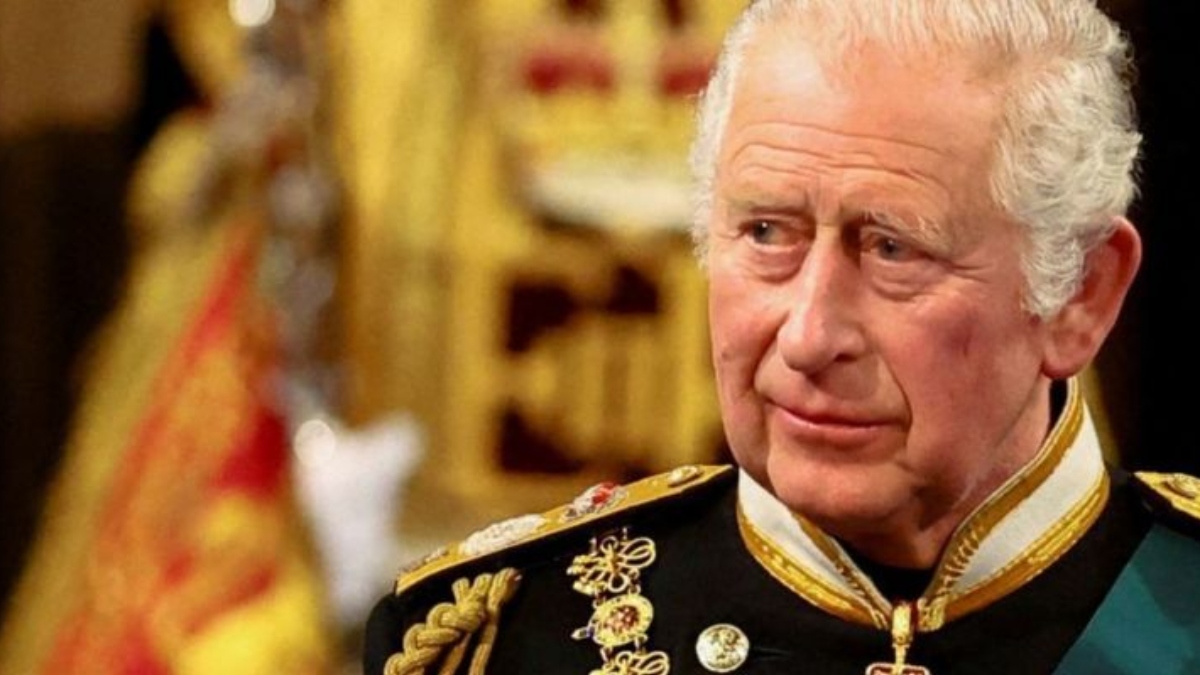
The first coronation in 70 years is to take place on Saturday morning, with King Charles III and the Queen Consort preparing for their historic carriage ride to Westminster Abbey.
Despite forecasts of rain, crowds have already begun to gather on the procession route.
There will be a huge security operation in central London, with 100 heads of state set to attend.
Protests have been promised by those opposed to the monarchy.
The Coronation service, which will last almost two hours, will be seen first-hand by 2,300 guests, including Prince Harry, the Duke of Sussex, who arrived from the United States on Friday on a commercial flight.
It will be the first time since the release of Prince Harry’s memoir that he will have been seen in public with his brother, Prince William, the Prince of Wales.
It is thought Prince Harry may fly back to the US a matter of hours after the ceremony to rejoin his wife Meghan.
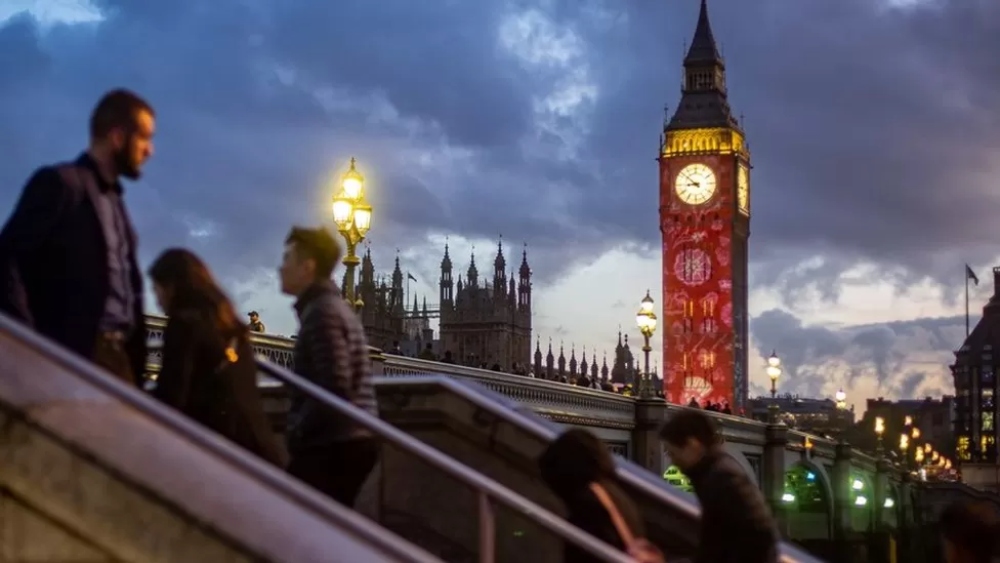
Image caption,London landmarks were lit up with projections to mark the Coronation
Charles became king of the United Kingdom and 14 other realms in September, when his mother Elizabeth died after 70 years on the throne. Months of intense planning have gone into the coronation celebrations – the 40th to take place at Westminster Abbey since 1066.
On the eve of the Coronation, the King looked relaxed as he went on a walkabout on the Mall, flanked by the Prince and Princess of Wales and a heavy security detail.
Barbara Crowther, 69, and her friend Pauline, joined the crowds holding a “Coronation Street” banner.
“We weren’t going to camp, but there are so many people here, we thought that if we don’t camp out, we won’t get anywhere near the front,” said Ms Crowther.
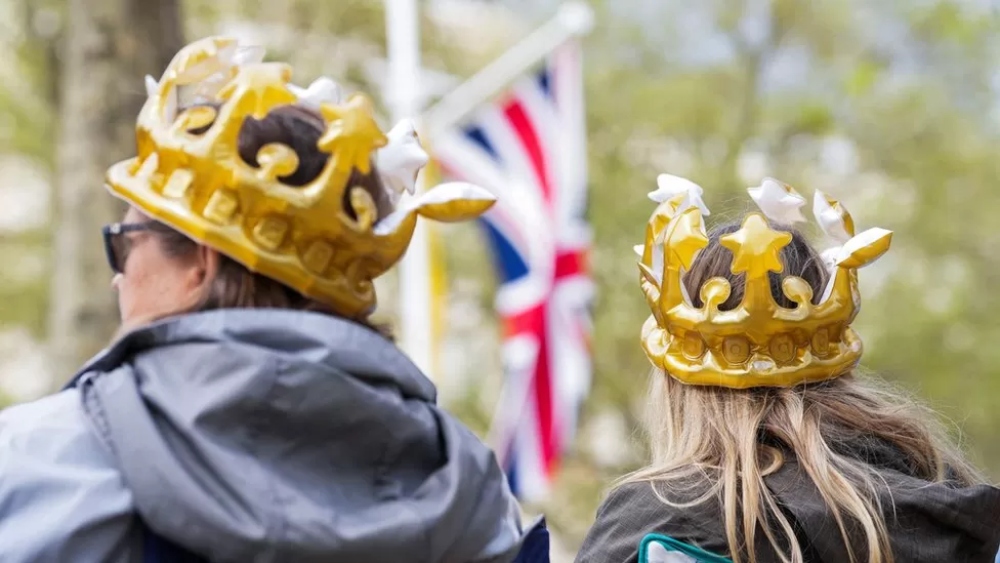
Image caption,Royal fans had been gathering on the Mall the day before the Coronation
Katie Gordon, from Wiltshire, was painting faces with her two daughters on Friday. She thinks the new King and Queen are “going to be great”.
“We’re camping out tonight ready for the Coronation, and they’re painting everyone’s faces as they walk by,” Ms Gordon said.
“We’re doing it for free, it’s just something we’re doing. We bought the facepaints for ourselves and thought, why not do it for other people too?
As the sun set on Friday, hundreds of tents had appeared along the Coronation route, with those gathered hoping to witness the historic event.
The Archbishop of Canterbury, Justin Welby, will preside over the service, with guests ranging from US First Lady Jill Biden to President Macron of France and entertainers Ant and Dec.
Olena Zelenska, wife of the Ukrainian president Volodymyr Zelensky, met Catherine, Princess of Wales at a pre-Coronation reception at Buckingham Palace on Friday.
Charles was photographed sharing warm words with the First Lady of Ukraine, and greeting Mary, Crown Princess of Denmark, with a handshake and a kiss on the cheek.
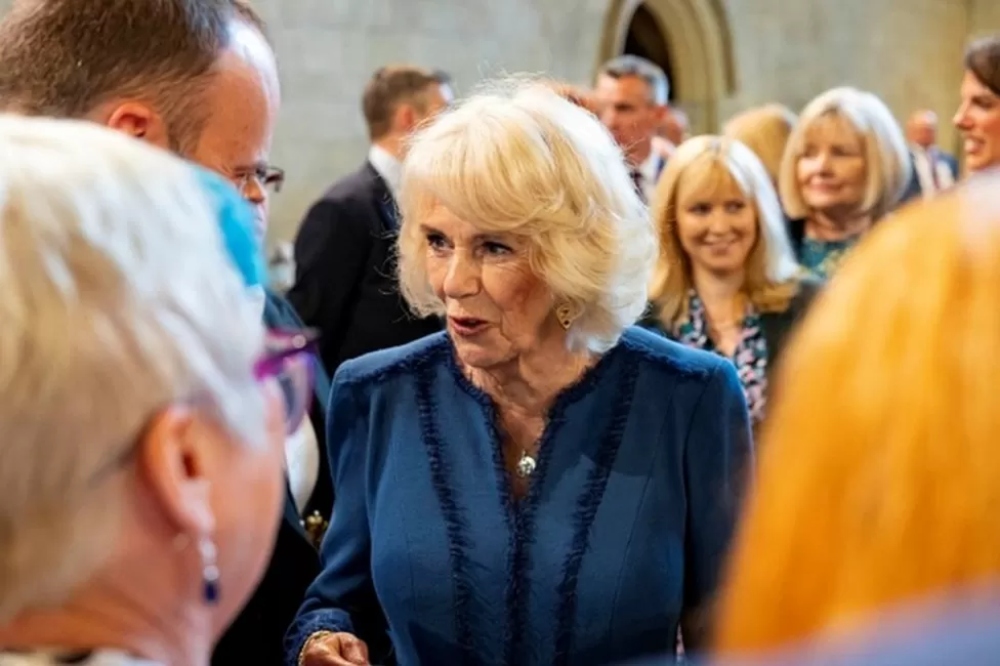
Image caption,The Queen Consort, at an event in Parliament this week, will be crowned alongside the King
There has been controversy over whether people at home were being asked to pledge their allegiance to the King.
The Church of England has made clear this is entirely optional and people might instead have a “private moment of reflection”.
The keynote message of the Coronation from King Charles is in his first prayer when he reaches the Abbey reads: “I come not to be served, but to serve.”
The high point of the ceremony will come when the St Edward’s Crown is placed on the King’s head, a moment that will be marked by the Abbey bells being rung and a gun salute in nearby Horse Guards Parade.
Camilla will be crowned alongside Charles – and after the couple’s long and often complicated relationship, she will now be officially described as “Queen Camilla”.
The ceremony will emphasise diversity and inclusion, with more multi-faith elements than any previous coronation, with contributions from Jewish, Muslim, Buddhist and Sikh representatives.
A Bible lesson will be read by Prime Minister Rishi Sunak, who is Hindu, and music will be sung in Welsh and Scottish and Irish Gaelic.
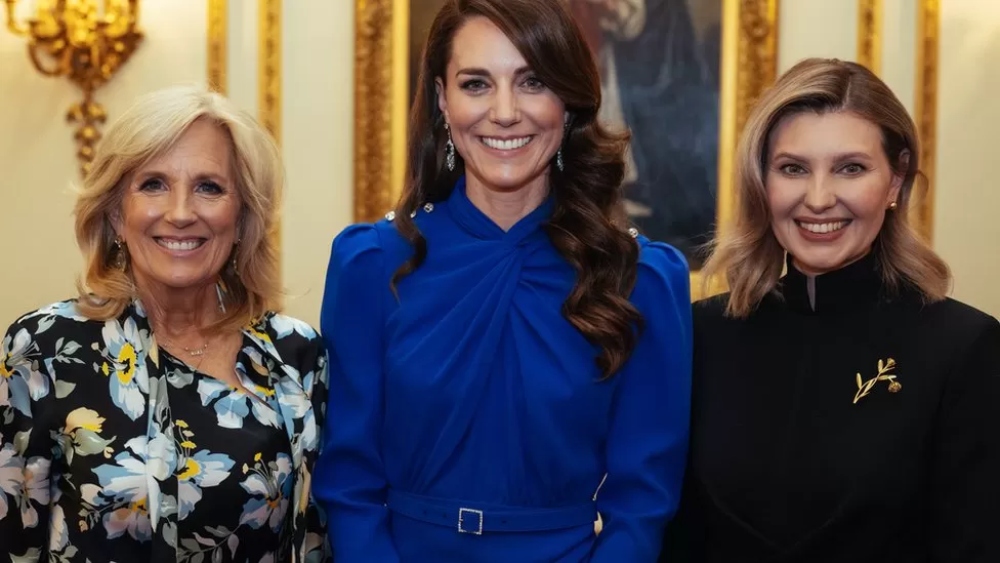
Image caption,At a pre-Coronation reception, US First Lady, Jill Biden, the Princess of Wales and Olena Zelenska, First Lady of Ukraine
There will be women bishops taking part in the service for the first time in a coronation service that goes back almost a thousand years.
After the service, at around 13:00 BST, King Charles and Queen Camilla will travel in the Gold State Coach back to Buckingham Palace, in a spectacular mile-long (1.6km) procession, with 4,000 soldiers and 19 military bands.
Meticulous rehearsals for the procession were carried out by marching around a replica route with landmarks such as the Cenotaph marked out with traffic cones.
When they reach the Palace, it remains uncertain who will be seen with the King and Queen for the traditional balcony appearance.
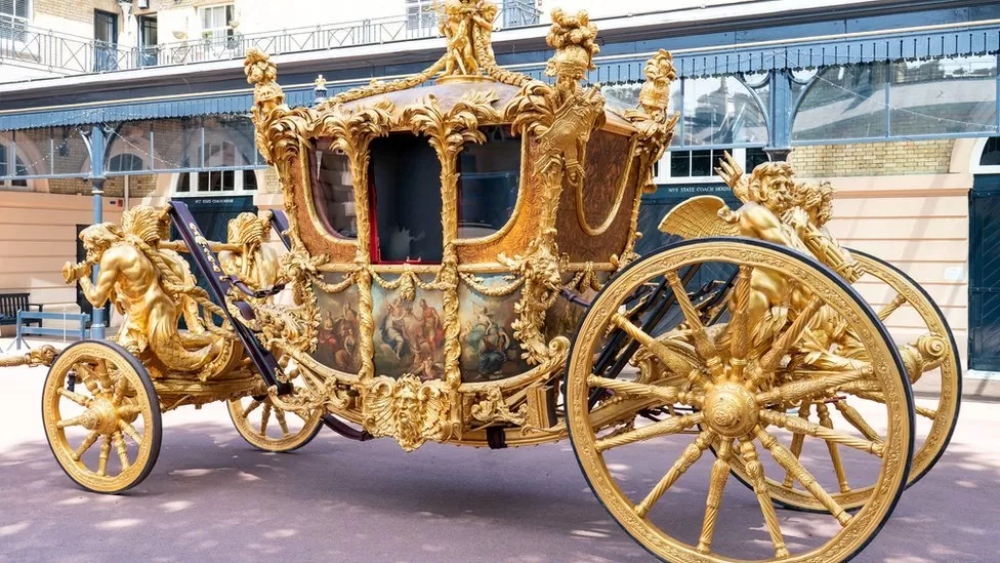
Image caption,The traditional Gold State Coach will be used on the way back to Buckingham Palace
There are plans for a flypast when the senior royals are on the Palace balcony, but there will be concerns about the weather, with a forecast for cloud and showers.
The run-up to the Coronation has also seen a number of vocal protests from anti-monarchy groups – and the Republic campaign group has announced its intention to hold a protest on the route of the procession.
There will be a massive security operation, with the Metropolitan Police putting 11,500 officers on duty in what it says will be its biggest ever single-day deployment.
Anti-monarchy groups have defended their right to protest, but the police have warned that “tolerance for any disruption, whether through protest or otherwise, will be low”.
The guest list has also been disputed, with criticism of the presence of Chinese vice-president Han Zheng, accused of presiding over a crackdown on civil liberties in Hong Kong.
But this will be a ceremony played out before a huge global audience, with TV crews from all over the world arriving in London.
They will see pageantry, religious symbolism and ancient traditions, with King Charles III crowned in a 700-year-old Coronation chair, in a ceremony that most people will never have seen before in their lives.
BBC NEWS
You may like
-
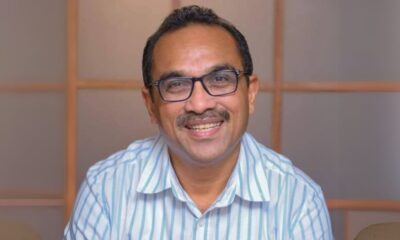

Cabinet approval for online traffic fine payment system – Bimal
-
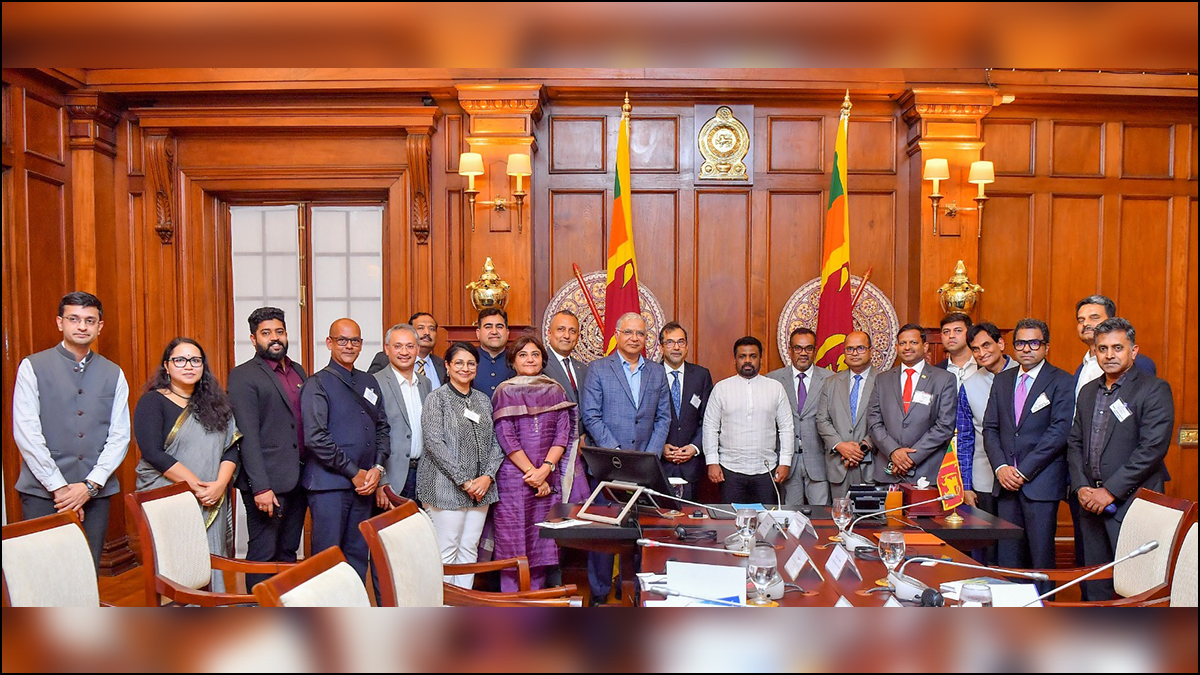

Indian entrepreneur delegation meets President AKD (Pics)
-
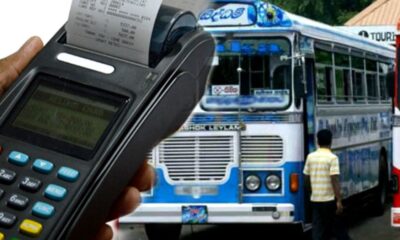

NTC approves 0.55% bus fare reduction
-
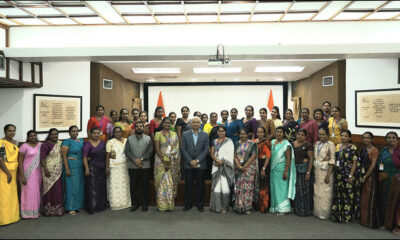

Indian HC meets Hindi teachers selected for training in Agra (Pics)
-
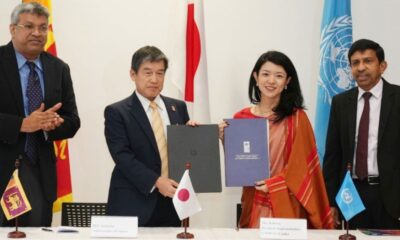

Japan grants US$ 2.5 mn. to SL to strengthen anti-corruption mechanisms
-


3 ex-DMT officials including ex-commissioner, remanded
FEATURES
Asweddumized fields and sizzling kottu roti: New words from Sri Lanka
Published
5 days agoon
June 26, 2025By
editor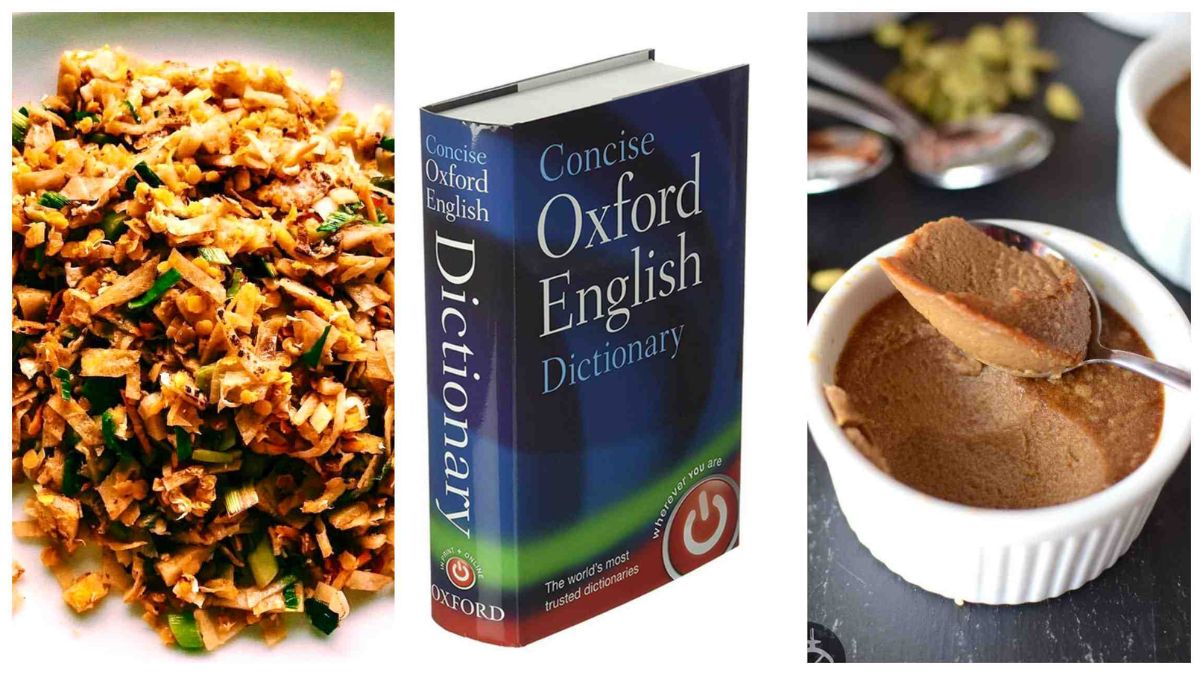
In a letter dated 7 October 1971 and sent from Panadura, Ceylon, OED contributor Pearl Cooray wrote to then Chief Editor Robert Burchfield: ‘I have looked up references for the word asweddumize and have succeeded to a certain extent. The Sinhala word aswedduma means “land recently converted into a paddy field”, and the Anglicized word asweddumize means to prepare a field for sowing paddy’. Cooray was a Sri Lankan academic who visited Burchfield in Oxford earlier in 1971, and upon returning to her country and her position in the Dictionary Department of the University of Ceylon, briefly corresponded with the OED, sending the above quoted letter as well as a selection of Sri Lankan newspapers and magazines for the reading programme for the OED Supplements that were in preparation at the time. Her suggestion for asweddumize would have been too late for the word to be considered for Volume I of the Supplements, so Burchfield wrote the word and definition on a paper slip, the main means by which words were tracked until the 2010s, and filed it alongside an earlier slip from July 1970 with the same suggestion from another Sri Lankan contributor, D. N. Ponnamperuma.
Nothing further is found about asweddumize in the OED’s files until 1986, when botanist D. J. Mabberley, a regular consultant for the Supplement, sent in a quotation slip for the word, which he would have encountered during the time he spent at a university in Sri Lanka. A decade later, another slip records the decision made not to draft an entry for asweddumize due to lack of evidence. ‘Omit (sadly)’was the responsible editor’s regretful note on the slip.
Almost thirty years later, this sad omission has finally been rectified, with the addition of asweddumize to the OED as part of this update. Current OED Sri Lankan English consultant Rochana Jayasinghe’s research on Pearl Cooray and her contributions to the Supplement helped put asweddumize back on the OED’s radar, and now that the dictionary’s editors have wider access to historical and contemporary Sri Lankan sources than their counterparts in the 1970s and 80s, it was possible to find sufficient evidence for the word, including a first quotation from as far back as 1857.
Joining asweddumize among this batch of new words are other borrowings from Sinhala, the Indo-Aryan language primarily spoken by the Sinhalese, the largest ethnic group in Sri Lanka. Mallung (first attested 1893) is lightly cooked, shredded (often leafy green) vegetables mixed with fresh grated coconut, chilli, and other spices, served as a side dish, salad, or condiment as part of a typical Sri Lankan meal, while kiribath (1886) is a Sri Lankan dish made with rice cooked in coconut milk and formed into a block, typically sliced into diamond-shaped pieces and served with various types of onion relish or sweetened with jaggery. Kiribath is traditionally eaten at special occasions such as Avurudu (1881), the first day of the Sinhala and Hindu New Year, occurring on the spring equinox (usually falling around 14 April), marked by a period of celebration typically lasting for seven to ten days.
Other Sri Lankan English words in this update originate both in Sinhala and another widely spoken language on the island, Tamil. Kottu roti (1991) is a Sri Lankan dish consisting of pieces of roti, meat, and vegetables, mixed with spices and curry sauce, and chopped by cleavers as they are cooked on a griddle. It is typically associated with the distinctive sound of the cleavers hitting the griddle as it is prepared by roadside vendors, and its name combines the Tamil word kottu ‘chopped’ with the Sinhala word roṭi ‘bread’. Partly a borrowing from Sinhala and partly a borrowing from Tamil, watalappam (1956) is a custard made from coconut milk (or sometimes condensed milk), cashew nuts, eggs, and spices such as cardamom and cloves, sweetened with jaggery and traditionally eaten by Sri Lankan Muslims during celebrations marking the end of Ramadan.
Sri Lankan music is represented by the words baila (1973) and papare (2006). Baila, a loan word from Portuguese, refers to an uptempo style of popular music originating in Sri Lanka which combines influences from both Africa and Europe, typically played in 6-8 time, with a syncopated rhythm, as well as to the style of dance performed to this music. Often associated with weddings and other celebrations, types of baila music are also popular in Goa and in the city of Mangaluru, on India’s west coast. Papare, on the other hand, is a genre of Sri Lankan music usually played at cricket and other sports matches, characterized by lively rhythms and typically featuring instrumentation of trumpet, saxophone, trombone, and snare and bass drums.
Apart from adding new Sri Lankan English words, OED editors have also revised a number of existing Sri Lankan English entries in the dictionary. Both these new and revised entries have been given transcriptions and audio pronunciations based on a new pronunciation model for Sri Lankan English, which is explained in more detail in this article. These enhancements to the OED’s coverage of Sri Lankan English help provide a more complete picture of how the language is used islandwide.
Full list of World English additions and revisions in the OED June 2025 update
(oed.com)
FEATURES
Dog-sized dinosaur that ran around feet of giants discovered
Published
6 days agoon
June 25, 2025By
editor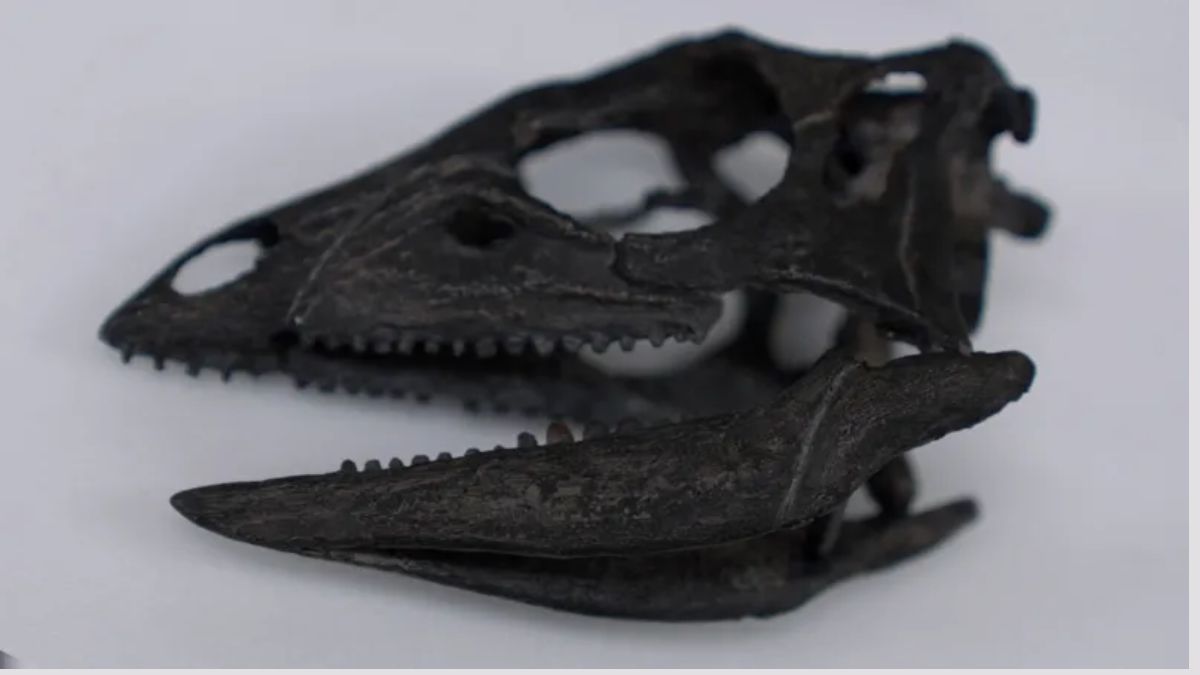
The full name of the new species is Enigmacursor mollyborthwickae dinosaur
A labrador-sized dinosaur was wrongly categorised when it was found and is actually a new species, scientists have discovered.
Its new name is Enigmacursor – meaning puzzling runner – and it lived about 150 million years ago, running around the feet of famous giants like the Stegosaurus.
It was originally classified as a Nanosaurus but scientists now conclude it is a different animal.
On Thursday it will become the first new dinosaur to go on display at the Natural History Museum (NHM) in London since 2014.
BBC News went behind the scenes to see the dinosaur before it will be revealed to the public.
The discovery promises to shed light on the evolutionary history that saw early small dinosaurs become very large and “bizarre” animals, according to Professor Paul Barrett, a palaeontologist at the museum.
When we visit, the designer of a special glass display case for the Enigmacursor is making last-minute checks.
The dinosaur’s new home is a balcony in the museum’s impressive Earth Hall. Below it is Steph the Stegosaurus who also lived in the Morrison Formation in the Western United States.
Enigmacursor is tiny by comparison. At 64 cm tall and 180 cm long it is about the height of a labrador, but with much bigger feet and a tail that was “probably longer than the rest of the dinosaur,” says Professor Susanna Maidment.

The Enigmacursor was a small dinosaur that lived alongside some of the biggest known
“It also had a relatively small head, so it was probably not the brightest,” she adds, adding that it was probably a teenager when it died.
With the fossilised remains of its bones in their hands, conservators Lu Allington-Jones and Kieran Miles expertly assemble the skeleton on to a metal frame.
“I don’t want to damage it at this stage before its revealed to everybody,” says Ms Allington-Jones, head of conservation.

Conservators Lu Allington-Jones and Kieran Miles assembled the dinosaur onto a frame for display
“Here you can see the solid dense hips showing you it was a fast-running dinosaur. But the front arms are much smaller and off the ground – perhaps it used them to shovel plants in its mouth with hands,” says Mr Miles.
It was clues in the bones that led scientists at NHM to conclude the creature was a new species.
“When we’re trying to identify if something is a new species, we’re looking for small differences with all of the other closely-related dinosaurs. The leg bones are really important in this one,” says Prof Maidment, holding the right hind limb of the Enigmacursor.
When the dinosaur was donated to the museum it was named Nanosaurus, like many other small dinosaurs named since the 1870s.
But the scientists suspected that categorisation was false.
To find out more, they travelled to the United States with scans of the skeleton and detailed photographs to see the original Nanosaurus that is considered the archtype specimen.
“But it didn’t have any bones. It’s just a rock with some impressions of bone in it. It could be any number of dinosaurs,” Professor Maidment said.

Susanna Maidment travelled to the US to look at the original Nanosaurus dinosaur
In contrast, the NHM’s specimen was a sophisticated and near-to-complete skeleton with unique features including its leg bones.
Untangling this mystery around the names and categorisation is essential, the palaeontologists say.
“It’s absolutely foundational to our work to understand how many species we actually have. If we’ve got that wrong, everything else falls apart,” says Prof Maidment.
The scientists have now formally erased the whole category of Nanosaurus.
They believe that other small dinosaur specimens from this period are probably also distinct species.
The discovery should help the scientists understand the diversity of dinosaurs in the Late Jurassic period.
Smaller dinosaurs are “very close to the origins of the large groups of dinosaurs that become much more prominent later on,” says Prof Barrett.
“Specimens like this help fill in some of those gaps in our knowledge, showing us how those changes occur gradually over time,” he adds.
Looking at these early creatures helps them identify “the pressures that finally led to the evolution of their more bizarre, gigantic descendants,” says Prof Barrett.

The fossilised remains are the most complete of any in the world for early small dinosaurs
The scientists are excited to have such a rare complete skeleton of a small dinosaur.
Traditionally, big dinosaur bones have been the biggest prize, so there has been less interest in digging out smaller fossils.
“When you’re looking for those very big dinosaurs, sometimes it’s easy to overlook the smaller ones living alongside them. But now I hope people will keep their eyes close to the ground looking for these little ones,” says Prof Barrett.
The findings about Enigmacursor mollyborthwickae are published in the journal Royal Society Open Science.
– Georgina Rannard
Science correspondent
(BBC News)
FEATURES
JVP-NPP should learn difference between “marine research” & “surveillance”
Published
2 weeks agoon
June 21, 2025By
editor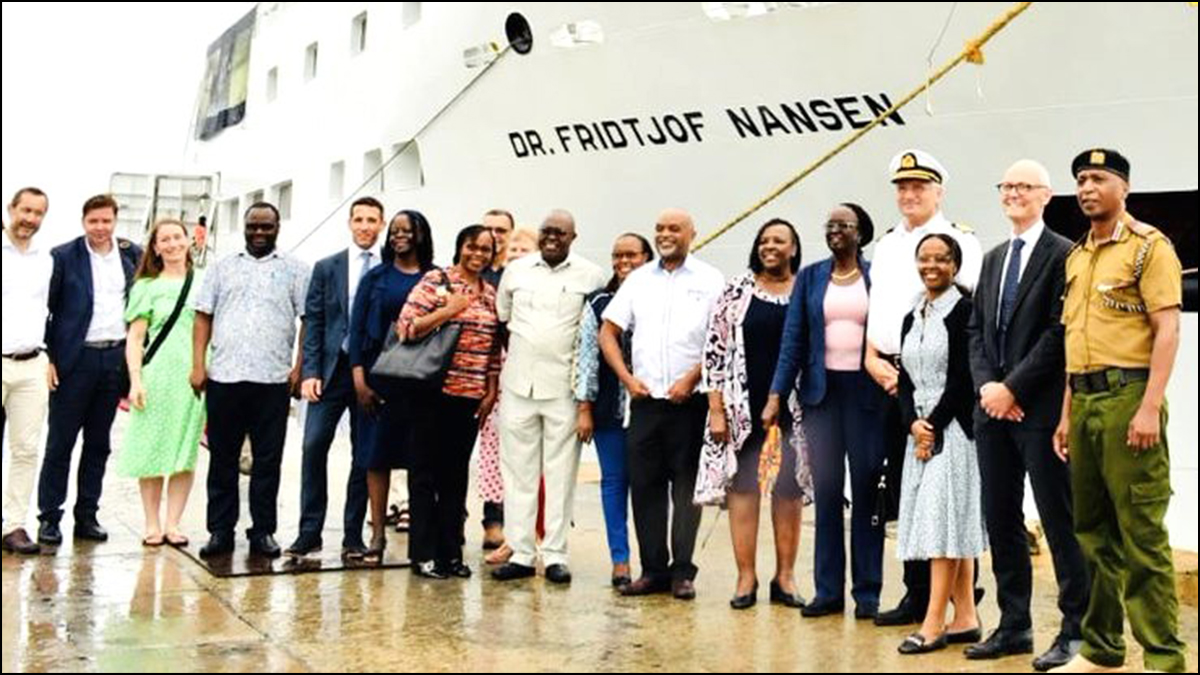
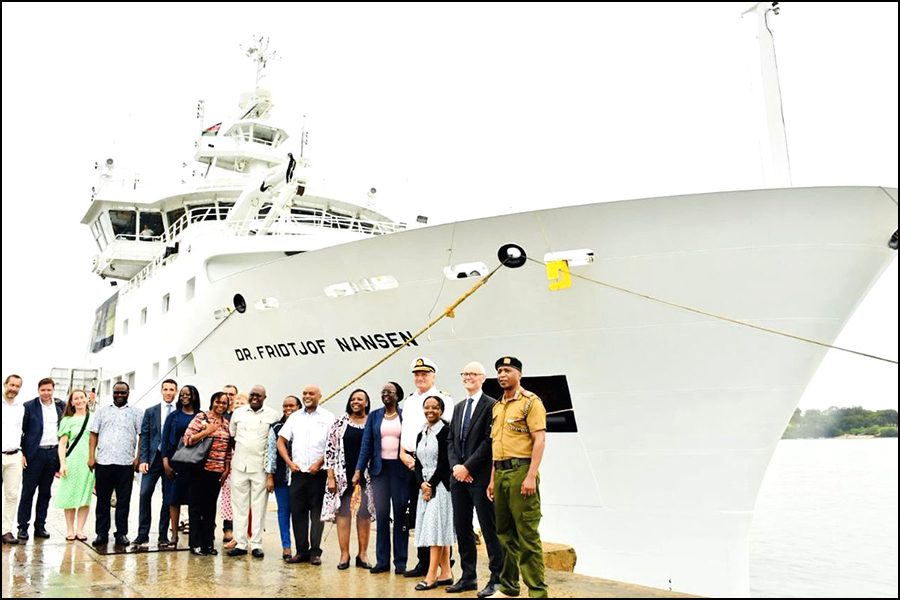
There’s now an apparent stand-off between the UN FAO and the Foreign Affairs Minister Vijitha Herath on the request made by the FAO to have permission for the UN flagged “Dr. Fridtjof Nansen” marine research vessel to enter Sri Lankan waters. Minister Herath is on record saying the request would have to wait till the Committee on Standard Operating Procedures (SOP) for foreign research vessels appointed by him and perhaps chaired by him too, complete their task in formulating the SOP. It was revealed, the SOP Committee is yet to be convened for the first time. With “Dr. Fridtjof Nansen” marine research vessel waiting in Mauritius to set sail to Sri Lanka, numerous discussions the UN had with the Foreign Ministry (FM) since April has only reached the point, where the SL FM agreed to allow the ship to pick Bangladeshi “Scientists” from Colombo, but not get involved in any research in our waters.
res (SOP) for foreign research vessels appointed by him and perhaps chaired by him too, complete their task in formulating the SOP. It was revealed, the SOP Committee is yet to be convened for the first time. With “Dr. Fridtjof Nansen” marine research vessel waiting in Mauritius to set sail to Sri Lanka, numerous discussions the UN had with the Foreign Ministry (FM) since April has only reached the point, where the SL FM agreed to allow the ship to pick Bangladeshi “Scientists” from Colombo, but not get involved in any research in our waters.
What’s this whole calamity over a FAO marine research ship requesting permission to enter Sri Lankan waters? Someone somewhere at the helm of the Foreign Ministry, or the Foreign Minister himself has wholly misinterpreted the issue of country owned research ships visiting Sri Lanka and the moratorium that was imposed by President Wickramasinghe barring foreign research ships.
Sri Lanka was pressured by India and the US to curtail if not stop Chinese research ships from docking in our ports in the past few years. Special concerns were over the 02 research ships “Yuan Wang 5” that docked at Hambantota in early 2022 during Gotabhaya’s presidency and “Shi Yan 6” in October 2023 at the Colombo port during Wickramasinghe’s presidency. It was said, these 02 research ships had the capacity for surveillance and monitoring the region. Under pressure especially from New Delhi, President Wickramasinghe decided to impose a one year moratorium on foreign research ships visiting Sri Lanka, effective from early January 2024.
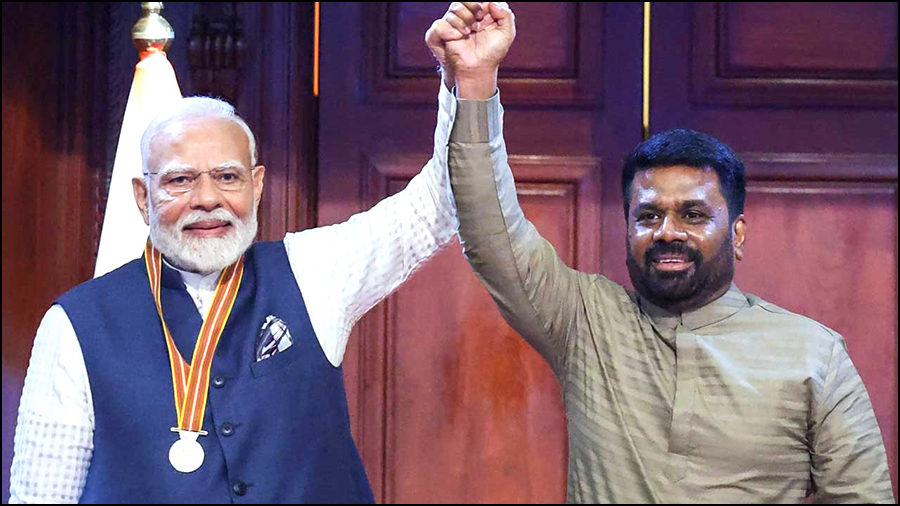
The Wickramasinghe moratorium came to its end on 05 January 2025, as the JVP-NPP government did not extend it further. Reason to allow the moratorium to lapse in January, may have been on a strictly confidential agreement reached to have a separate bi-lateral agreement on defence, during President Anura Kumara’s maiden official visit to India in mid-December 2024. Defence had been an issue discussed with Indian authorities during President Anura Kumara’s Indian visit, wrote Dr. Samatha Mallempati of “Indian Council of World Affairs” in May 2025. A defence MoU would thus make the moratorium irrelevant thereafter. PM Modi was to visit Sri Lanka 04 months later in early April this year. One among the many MoUs the 02 governments signed during PM Modi’s visit was the first ever Memorandum of Understanding (MoU) on “defence co-operation”.
India began working on a defence strategy for Indian Ocean Region (IOR) since the conclusion of Sri Lanka’s North-East civil war in 2009. New Delhi was very much concerned over President Rajapaksa’s post-war association with not only China, but with Pakistan too. Both with long time hostile border disputes with India. Contributing an article to “Stimson.org” on Pakistan-Sri Lanka relations in March 2021, two researchers on South & East Asian geo-politics Riaz Khokhar and Asma Khalid wrote, “In 2016, Pakistan signed a defense agreement with Sri Lanka to provide Colombo with eight JF-17 fighter aircrafts. Pakistani and Sri Lankan armies and naval forces have also regularly interacted through port calls, military and naval training and exercises, and defense workshops and seminars. In the recent high-level visit to Colombo, the Pakistani premier offered a USD $50 million credit line to Sri Lanka to further enhance defense and security partnerships.”
South Asian geo-politics did have new developments with post-war Sri Lanka compromising its economic needs with defence and national security in challenging the Tamil Diaspora canvassed US-Euro resolutions at UNHRC Sessions. Rajapaksa government was required to accept independent international investigations on war crimes and crimes against humanity, with many top military officers named. Pakistan stood with Sri Lanka, voting against all such resolutions at every UNHRC Session, while the Rajapaksa regime joined the Belt and Road Initiative of China, and was financially supported by China. Financial support that led to the popular adage “Sri Lankan type Chinese debt trap”.
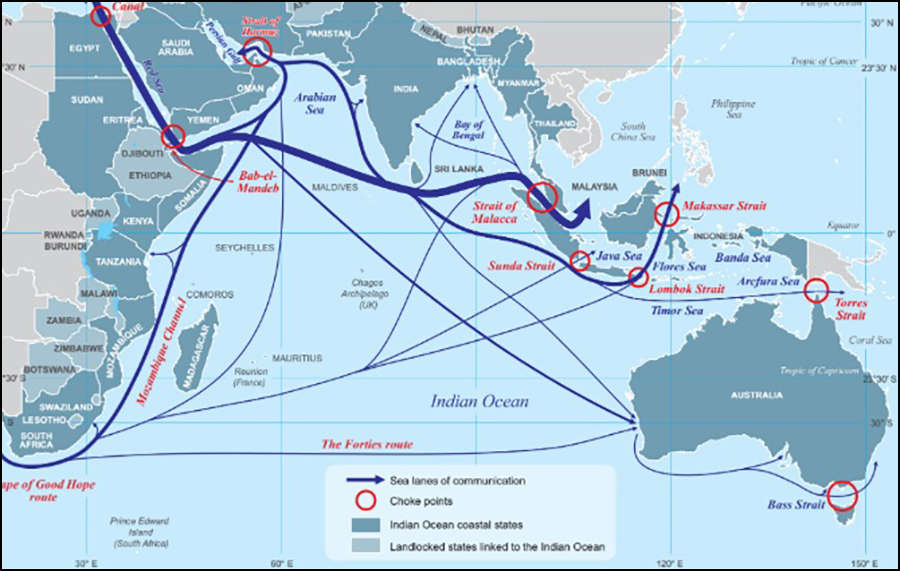
India has since been working towards establishing its dominance in the IOR keeping Sri Lanka as its focal point. Highlighting the geo-political importance of Sri Lanka, Dr. Samatha Mallempati wrote, “Since the region accounts for fifty percent of world maritime trade and seventy percent of global trade in oil and gas, there is a greater need to safeguard the sea lanes of communication. The increasing strategic significance of island states in the region therefore assumed importance. The island states such as Sri Lanka is looking to play a much bigger role by leveraging their geographical location.”
The perception in New Delhi that Sri Lanka is leveraging its geographical location to define geo-politics in the IOR, was what paved for the MoU on defence co-operation India signed with Sri Lanka, that for 05 years would provide India adequate space to influence Sri Lankan geo-politics in its favour. But the fact is, all these agreements and treaties are about IOR peace and stability and the influence “foreign countries” may have in it. The Sri Lankan moratorium was also about research ships of foreign countries, docking in our ports.
How would the UN flagged marine research ship “Dr. Fridtjof Nansen” interfere in IOR stability and peace? The request to FAO for marine research in our waters had gone from the SL Government, never mind who led the government. FAO is focussed on sustainable fisheries management and this modern, fully equipped ship for marine research is used mainly in African and Indian Ocean waters in collaboration with NORAD to support developing countries with research based fisheries management. That perhaps was the only reason for the previous government to request the FAO to visit Sri Lankan waters. Mind you, that request for FAO to undertake marine research in our waters, went out while the moratorium on foreign research ships was fully effective.
Whatever the bureaucracy at the FM says, a seasoned politician like Vijitha Herath who had been in parliament for 25 years to date from year 2000, should know the difference between this UN flagged marine research ship and other research ships owned by individual countries. Anything flagged as “UN” is common property of 195 sovereign nation States who are UN members. This ignorance therefore very clearly exhibits the JVP/NPP leadership as the most intellectually timid leadership to have been voted to power since 1948 independence.
Kusal Perera
20 June, 2025

Cabinet approval for online traffic fine payment system – Bimal
Indian entrepreneur delegation meets President AKD (Pics)

NTC approves 0.55% bus fare reduction
Trending
-
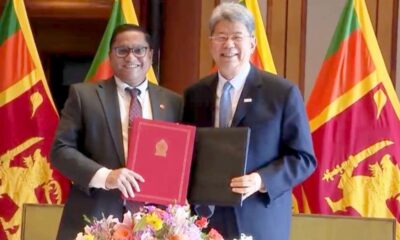
 BIZ3 days ago
BIZ3 days agoSri Lanka’s largest FDI project in limbo as Sinopec H’tota refinery face delays
-
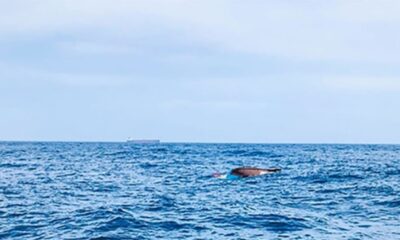
 News3 days ago
News3 days ago2 missing as fishing boat capsizes off Tangalle
-
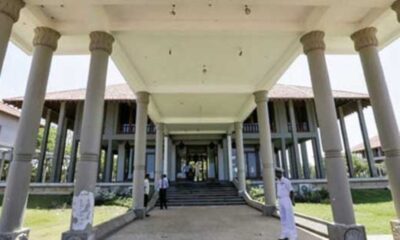
 News3 days ago
News3 days ago8 persons claim ownership rights to Jaffna’s Presidential Palace
-
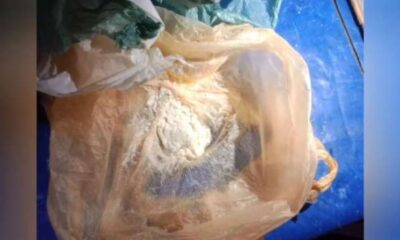
 News1 day ago
News1 day agoLorry carrying explosives seized on Habarana-Trinco road






